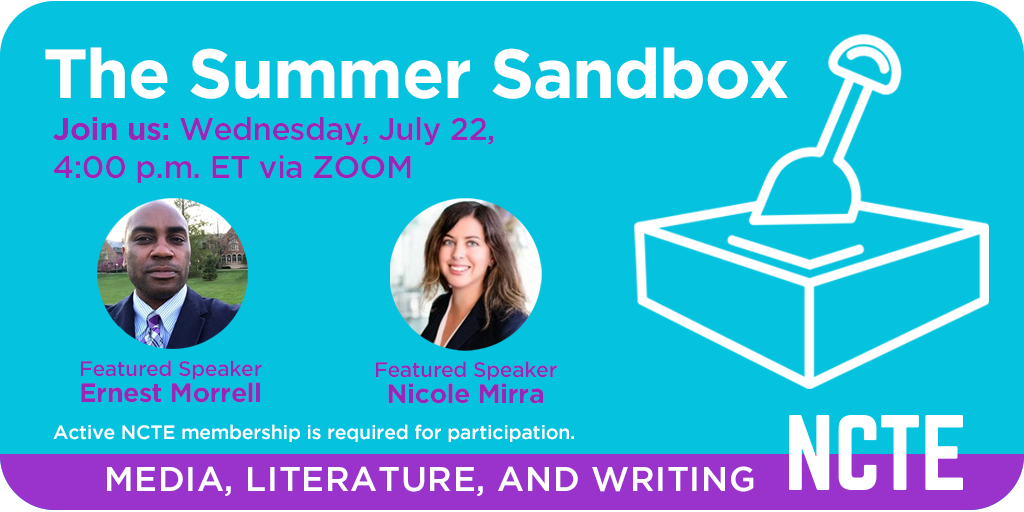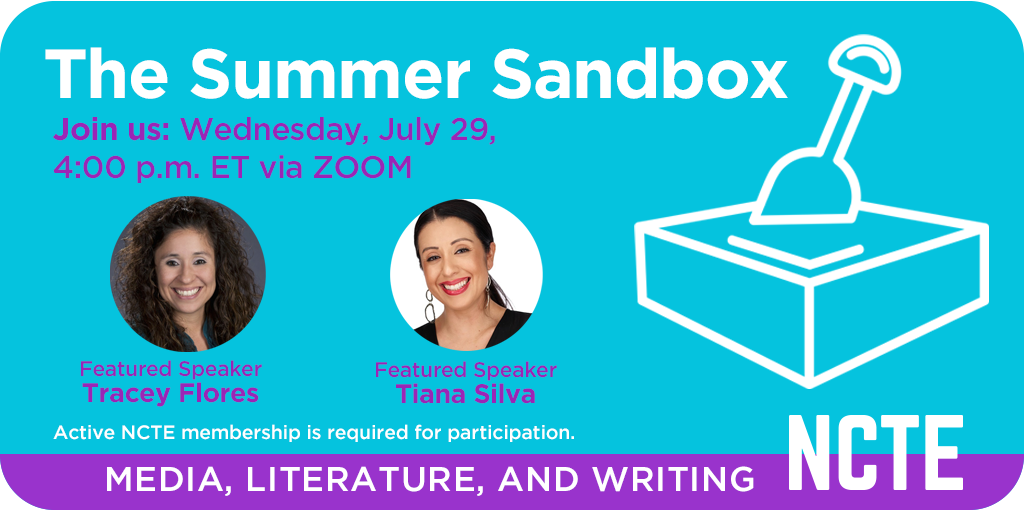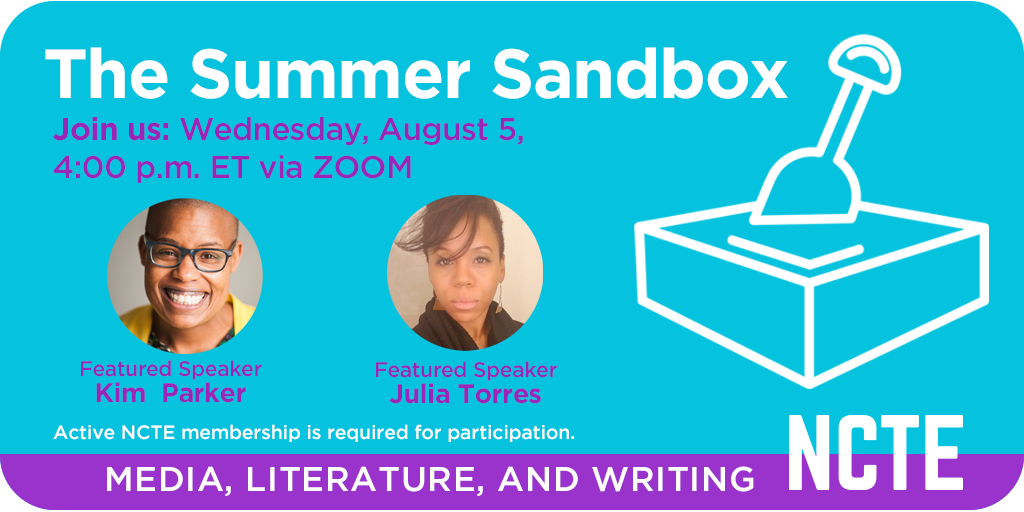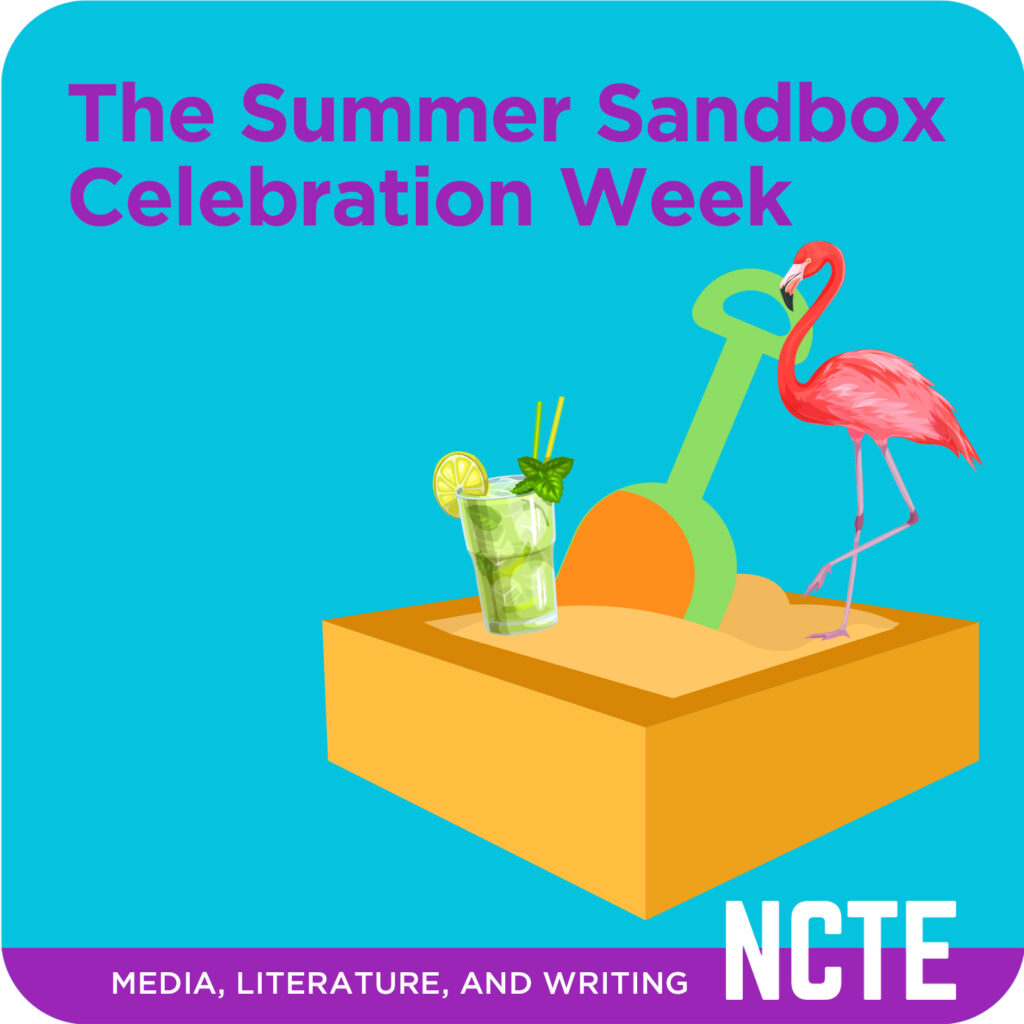Starting July 22, 2020
Wednesdays | 4:00–5:30 p.m. ET
For teachers, summer has long been a prime time for reflecting on the school year that has ended and recharging for the new school year to come. Now, after an unprecedented and exhausting spring, teachers need this precious time more than ever to make sense of what has happened, plan for what is to come, and do what we do best: keep learning how to be better educators for our students. The NCTE Summer Sandbox is a space for community, for play, and for experimenting with new ideas for teaching toward an uncertain future—all grounded in deep commitments to enacting antiracist pedagogy in ELA classrooms at all levels. We invite NCTE members to join us for a 4-week summer exploration to learn from innovative colleagues and collaborate with like-minded peers to integrate critical media literacy, culturally responsive literature, and writing for civic engagement into their practice.
Deadline for registration was July 10 at 5:00 p.m. ET. Limited seating available. Applicants who have been accepted will be notified.
Week 1
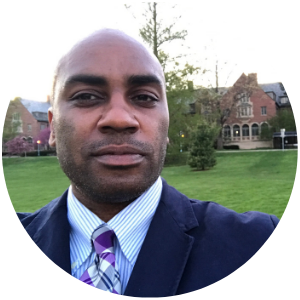
ERNEST MORRELL is the Coyle Professor of Literacy Education and Inaugural Director of the Center for Literacy Education at the University of Notre Dame. He is an elected Fellow of the American Educational Research Association and past president of the National Council of Teachers of English. Ernest has been annually ranked among the top 200 university-based education scholars in the RHSU Edu-Scholar Public Influence Rankings published by EdWeek. He has authored 90 articles and book chapters and 10 books. His scholarly interests include literacy studies, new directions in the teaching of English, critical media pedagogy, youth popular culture, and the literature of the African Diaspora.

NICOLE MIRRA is an assistant professor of urban teacher education in the Graduate School of Education at Rutgers, The State University of New Jersey. She previously taught high school English Language Arts in Brooklyn, New York, and Los Angeles, California. Her research explores the intersections of critical literacy and civic engagement with youth and teachers across classroom, community, and digital learning environments. Central to her research and teaching agenda is a commitment to honoring and amplifying the literacy practices and linguistic resources that students from minoritized communities bring to civic life. In addition to Educating for Empathy: Literacy Learning and Civic Engagement (Teachers College Press, 2018), she is the lead author of Doing Youth Participatory Action Research: Transforming Inquiry with Researchers, Educators, and Students (Routledge, 2015).
Week 2
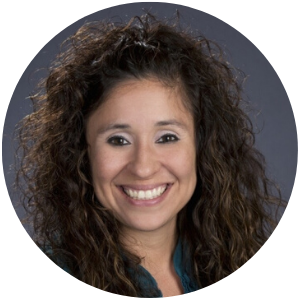
TRACEY T. FLORES is an assistant professor of language and literacy at the University of Texas at Austin where she teaches language arts methods and community literacies in the K–5 teacher education program. She is a former English language development (ELD) and English language arts (ELA) teacher, working for eight years alongside culturally and linguistically diverse students, families, and communities in K–8 schools throughout Glendale and Phoenix, Arizona. Her research focuses on Latina mothers’ and daughters’ language and literacy practices, the teaching of young writers in culturally and linguistically diverse classrooms, and family and community literacies. Tracey has published in Research in the Teaching of English, Journal of Literacy Research, Journal of Adolescent and Adult Literacy, Bilingual Research Journal, and Voices from the Middle.

TIANA SILVAS is a fifth-grade public school teacher at PS 59 in New York City. Her teaching experience spans upper elementary grades as well as working as a literacy coach in the South Bronx. Tiana’s research focuses on co-constructing and empowering learning experiences for all her students and supporting other teachers as they develop responsive and sensitive writing workshops. In 2016, Tiana was selected as a Heinemann Fellow and focused on researching ways writing can serve as a tool to create resiliency and agency. In 2017, she was appointed as a member of New York City’s District 2 Advisory Council. Alongside district leaders, Tiana has developed tools to support antibias hiring practices and developed retainment strategies within the district. Tiana is deeply committed to educational equity for students, families, community members, and teachers.
Week 3

KIMBERLY N. PARKER currently prepares preservice teachers as the Assistant Director of the Teacher Training Center at the Shady Hill School in Cambridge, MA. Kim taught in public schools, universities, and graduate schools for 18 years and served on several committees for the National Council of Teachers of English (NCTE) and the New England Association of Teachers of English (NEATE). As a Heinemann Fellow (2016–2018), Kim documented her successful work de-tracking her ELA classroom for students of color. Her continuing scholarship is focused on the literacy lives of Black youth, particularly those of Black boys. She is a co-founder of #DisruptTexts. You can follow her on Twitter at @TchKimpossible.
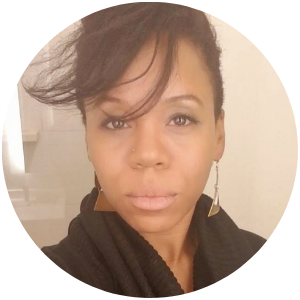
JULIA E. TORRES has taught language arts for fifteen years. Currently, she is a teacher librarian for the Montbello Campus, serving five schools within the far northeast region of Denver Public Schools. Formerly a teacher of AP English Language/Literature, Julia has served Colorado language arts teachers as the Vice President and President of the regional NCTE affiliate—the Colorado Language Arts Society. As a teacher/activist committed to education as a practice of freedom, her practice is grounded in the work of empowering students to use language arts to fuel resistance and positive social transformation. Currently, Julia is serving teachers as a 2018–20 Heinemann Fellow, focusing on libraries, digital literacy, and the formation of reading identities among secondary students in urban school districts. Julia is also the current NCTE Secondary Representative-at-Large. In cooperation with The Educator Collaborative, Julia facilitates workshops and professional conversations about antibias/antiracist education, social justice, and culturally sustaining pedagogies in language arts, as well as digital literacy and librarianship. Julia serves on several local and national boards and committees promoting educational equity and progressivism.


